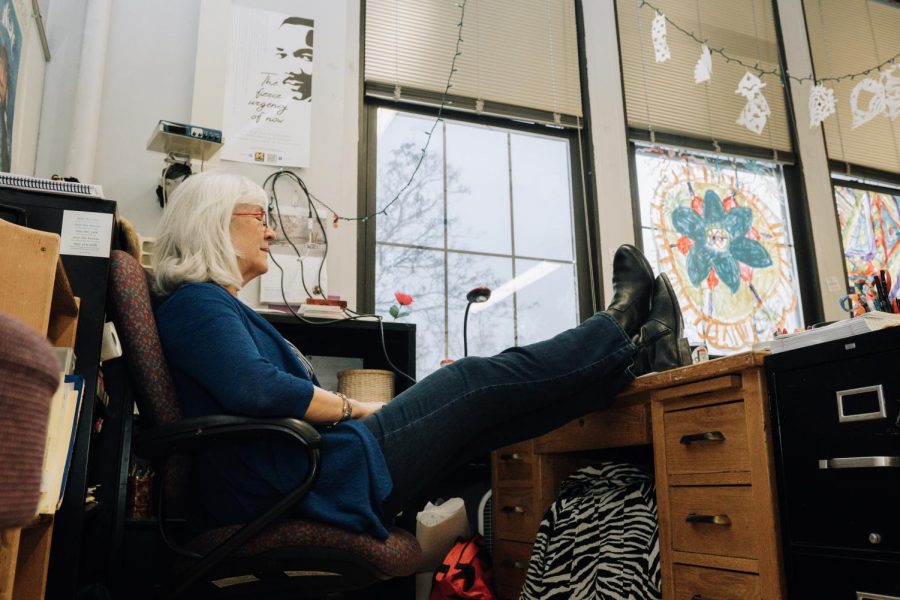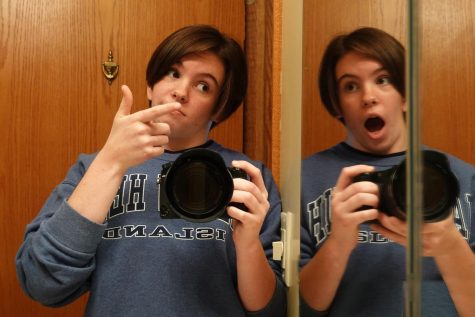A precious space
Photography by Ebba Gurney. Cindy Haidu-Banks assumes a pose she often assumes when reflecting about her teaching career.
February 24, 2020
As the 20 years Cindy Haidu-Banks has spent teaching draw to a close, she will often sit in her room like this: with her legs up on the old wooden desk she inherited from fellow teacher Ken McGraw, kicking back in her chair, taking it all in. She feels the warmth of the sunlight and the yellow tiles, admires the brilliant colors from the kites and fireworks that have been painted on her windows from various multi-cultural celebrations, and looks at all the posters she’s hung up. Sometimes, she hangs her head of one of her third-story windows to look at the garden on the ground below.
“I’ll really just take it in,” Cindy said. “I embrace that this is where I’ve been living and I’m saying goodbye to it and thanking the space. This is a precious space. This is really where I’ve lived a big chunk of my life the last 20 years.”
This has been Cindy’s home for the entire time she’s taught at CHS. It has grown with her; the longer she spent there, the more additions she’s made — the holiday lights that dangle from her ceiling, the paper-snowflakes, the social justice and Native American posters that her walls have accumulated.
Cindy is part Native American and the importance of Native history was the catalyst for her to get her teaching certificate. At the time, she was a single mother with two sons, the oldest of which who was just starting kindergarten. She worried about him; he was of mixed race — part Eastern European, part Native American and part African American — and she wasn’t sure he was going to get an accurate education about Native American history. To quell her fears, she convinced her son’s teacher to allow her to come in for three days with a curriculum about Native history.
The teacher, Jean Kluge, was welcoming to Cindy and had her return annually until she retired. In fact, it was Kluge who inspired Cindy to get her degree in education.
“She said to me at some point ‘Cindy, you need to go back and get your teaching certificate,’” Cindy said. “She was my inspiration. She said ‘You can do this. There’s continuing education for women on campus — they’ll help you find funding and loans.’ I was a single mom at that time with two sons and didn’t think it was possible, but she said ‘Absolutely it’s possible.’ She really helped open that door for me to go back and get that certificate.”
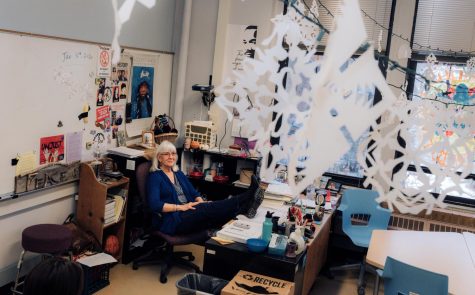
As Cindy was getting her certificate, she became a student teacher under the only mentor who accepted her application: Marcia Schaffer, a teacher a CHS. She’d had a relationship with the school previously — she’d even camped outside the building to save a friend’s child’s spot in line when that was part of the lottery system — but now she knew she really wanted to work at CHS.
“I loved it,” Cindy said of student teaching at CHS. “I loved every minute of it and hoped to be able to come back in some form.”
After she graduated with her teaching certificate in 1997, Cindy got her wish: a long term substituting position opened up at CHS. Teacher Claudia Keene had just given birth and decided to stay at home with her newborn child.
“So I thought that the baby and the mother and me all got the best of the decision,” Cindy said. “Mama and Baby got to stay home, and I got the job.”
When Cindy first taught U.S. History, a class she still teaches now, she started using the first few weeks of class to summarize important points in Native American history. That first time, however, a student when down to the office to complain to the Dean — “This new teacher isn’t teaching U.S. history,” they said. Later, the Dean approached Cindy.
“I hear you’re teaching Native history,” they said. “A student complained.”
“Yes that’s true,” Cindy said. “I am teaching Native history, but it is U.S. history.”
“I have no problem with that,” the Dean said, “I just wanted you to know.”
That course of events would set the tone for the rest of Cindy’s career at Community. She continued to teach Native history in her U.S. history class and even started a class focused on the history of Native Americans. For 18 years, Cindy has run a little buddy program with Ann Arbor Open teacher Denise where students in her sixth block history class send letters back and forth with Denise’s 3rd/4th graders. They also meet up a few times during the year and work together to maintain the Native American trail in West park.
“The relationship between the high school students and the 3rd/4th graders is really cool to see develop over the year,” Cindy said. “It has more rewards than Denise and I would ever imagine. Sometimes I would see a high school student who I felt might be chronically depressed or just something was going on — they never smile — and then I’d see them with their 3rd/4th grade student and they would laugh and smile. A whole side of them would come out that I never got to see.”
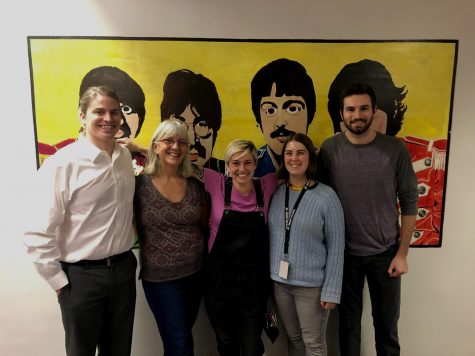
Cindy also got a unique experience in her relationship with other teachers. In other schools where she’d worked previously, staff would often be disrespectful towards each other, yelling and screaming at staff meetings. That’s why, at her first staff meeting at CHS, Cindy couldn’t believe her eyes: faculty was so kind to each other. She could have sworn someone broke out a guitar and started singing. Now, they have counselor Amy McLoughlin as DJ, who plays them walk-up songs.
“I love my colleagues. At Community, the collegial atmosphere is incredible: we have fun together, we laugh together, we joke, we are like a family. We’re still doing all the hard work of reporting and all the tough stuff we have to do, but we still laugh and share food and know how to be human with each other.”
One of the most important things for Cindy has been the close bond she formed with Janelle Johnson while they taught Social Justice together. Together, they’ve inspired students to have “courageous conversations,” she said.
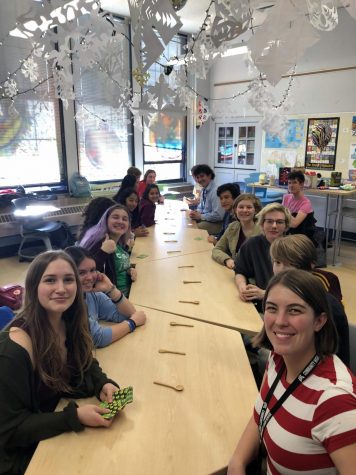
Most of all, Cindy cherishes student relationships, especially the ones she’s formed through forum, as she was able to share with them her love of nature.
“I converted a lot of students who were afraid of camping — who didn’t think they would ever camp — to camping,” Cindy said. “I feel like that’s important: for young people to be in nature and out of doors and appreciating the natural world.”
Her forum was the first class Cindy told about her retirement, and it will be difficult for her to leave them. Photos from her forum from the past few years have been tacked on pinkish purple paper that has been on her wall since her first forum pictures.
Despite her reluctance to leave CHS, Cindy feels that the “stars have aligned” for her retirement. She thinks the Social Studies department is strong. For about four years, Cindy and Chloe Root have co-headed the department; in fact, Root was a student in Cindy’s first forum, then shared Cindy’s room when she first took a job at CHS.
Also, the person taking over her forum, Sarah Hechler, used to be Cindy’s student teacher. Cindy trusts Sarah to keep traditions she’s built alive: cooking good food with students, camping and spending time in nature, maybe even the little buddy program. At the end of each semester, Cindy does a “number dance” to pass out students’ registration numbers; during her last one in Dec. 2019,Hechler video-taped parts to give her inspiration for spring registration.
During late 2018 and early 2019, Cindy lost a lot of people she was close to, including former CHS art teacher Elena Flores. This made her think about what she wanted out of the rest of her life.
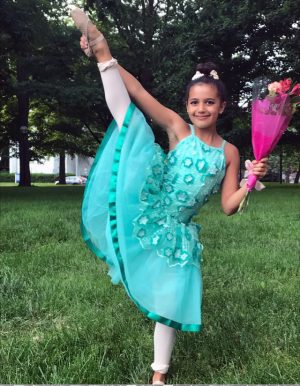
“In the process of being close to Elena and watching her fight and embrace her life, I took note of the importance of embracing life,” Cindy said. “So much leaving in such a short period of time made me really examine my life and how I’m feeling. It put the brakes on and made me just look at everything. I have things I want to do: I want to camp more, I want to travel more, I want to spend time with my granddaughters Adriana and Maya.”
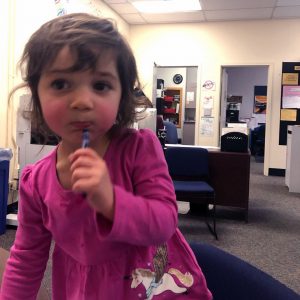
Cindy has spent the last few months taking apart her room. Hechler doesn’t want to keep the big wooden bookshelf she has in the corner, so she’s been packing up all of the books, giving some to forum students and Hechler, and boxing up others to bring home. The home for the large poster of a Native American grandmother is still up for debate: Cindy and Hechler are trying to decide whether to leave it in the room or to move it to the library for more students to see. During a forum meeting about the room, students made it clear that they wanted to leave the pictures up.
“I’ve never regretted getting my teaching certificate and having this career for 20 years,” Cindy said. “It’s been a high point in my life. Our school is unique. At community, you can develope relationships — real relationships — with students. That’s why I was able to grow so much. That’s why teachers do it: they love their subject, and they love teaching, but they love people.”



